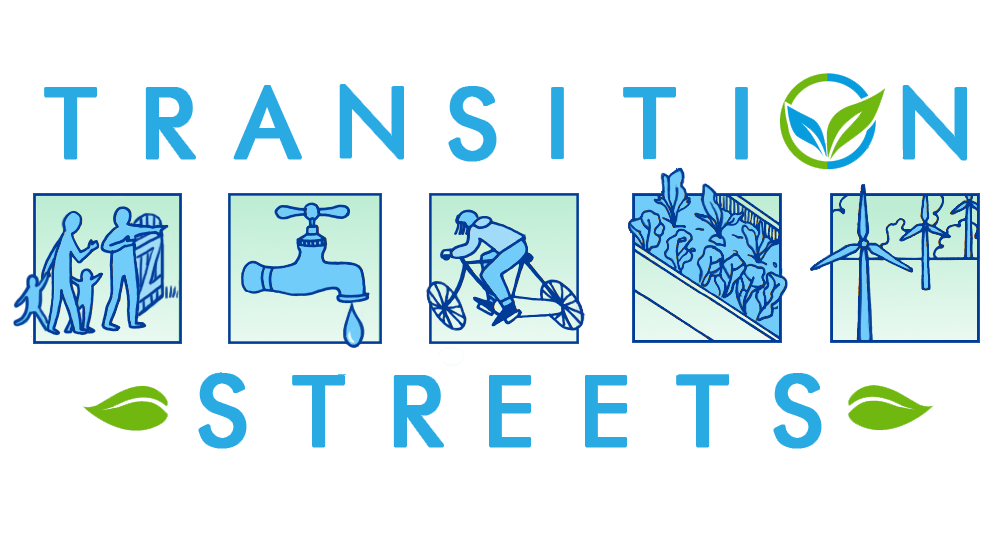Transition Streets is a toolkit for neighborhood transformation—a catalyst for action, dialogue, and community building. A project of Transition US, Transition Streets is as simple as neighbors coming together for seven meetings to explore carbon-saving and resilience-building actions in the areas of food, water, waste, energy, transportation, all the while building relationships with each other and a stronger sense of community.
Already sixty-four households in twelve communities across the US – from Berkeley, CA to Bozeman, MT and Newburyport, MA to Charlottesville, North Carolina – have piloted Transition Streets, and the feedback has been incredibly positive. Participants reduce waste, conserve water, and gain new skills – but what’s been most exciting is that people get to know their neighbors and build a sense of community on their streets.
For example, in Berkeley, neighbors who had lived in the same area for years—even decades—finally got to know each other, to see each other as friends and resources, to teach each other skills and help out on household projects.
Transition Initiatives in Charlottesville-Albemarle, Virginia, and Bozeman, Montana are exploring how to incorporate Transition Streets into city-wide sustainability efforts.
And against the backdrop of the California drought, the Transition Streets group in San Diego has been getting a lot of attention from the media, who see their effort as a positive, community-based approach to water conservation (check out the stories on NPR and KPBS).
Transition Streets was originally developed by Transition Town Totnes, UK, where more than 500 households participated and saved an average of 2600 pounds of carbon and $938 on their energy bills each year.
In collaboration with people and communities across the US, we’ve spent the last year adapting and testing this project and are so excited to see it taking on a life of its own.
To bring Transition Streets to your neighborhood, visit the new https://transitionstreets.org website, where you’ll find 100+ page handbook and other tools to help you succeed in bringing your neighbors together to address the great challenges of our time.









